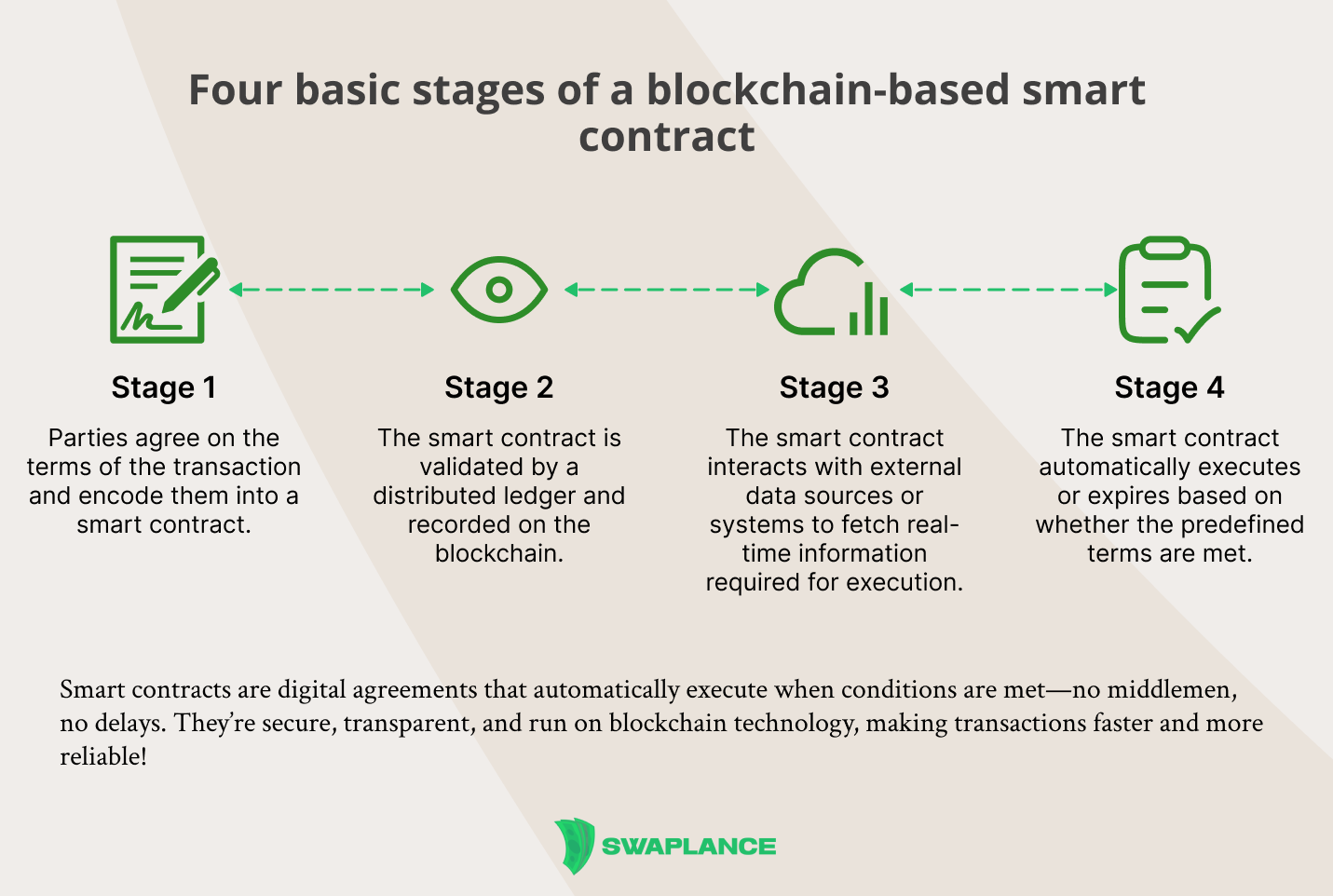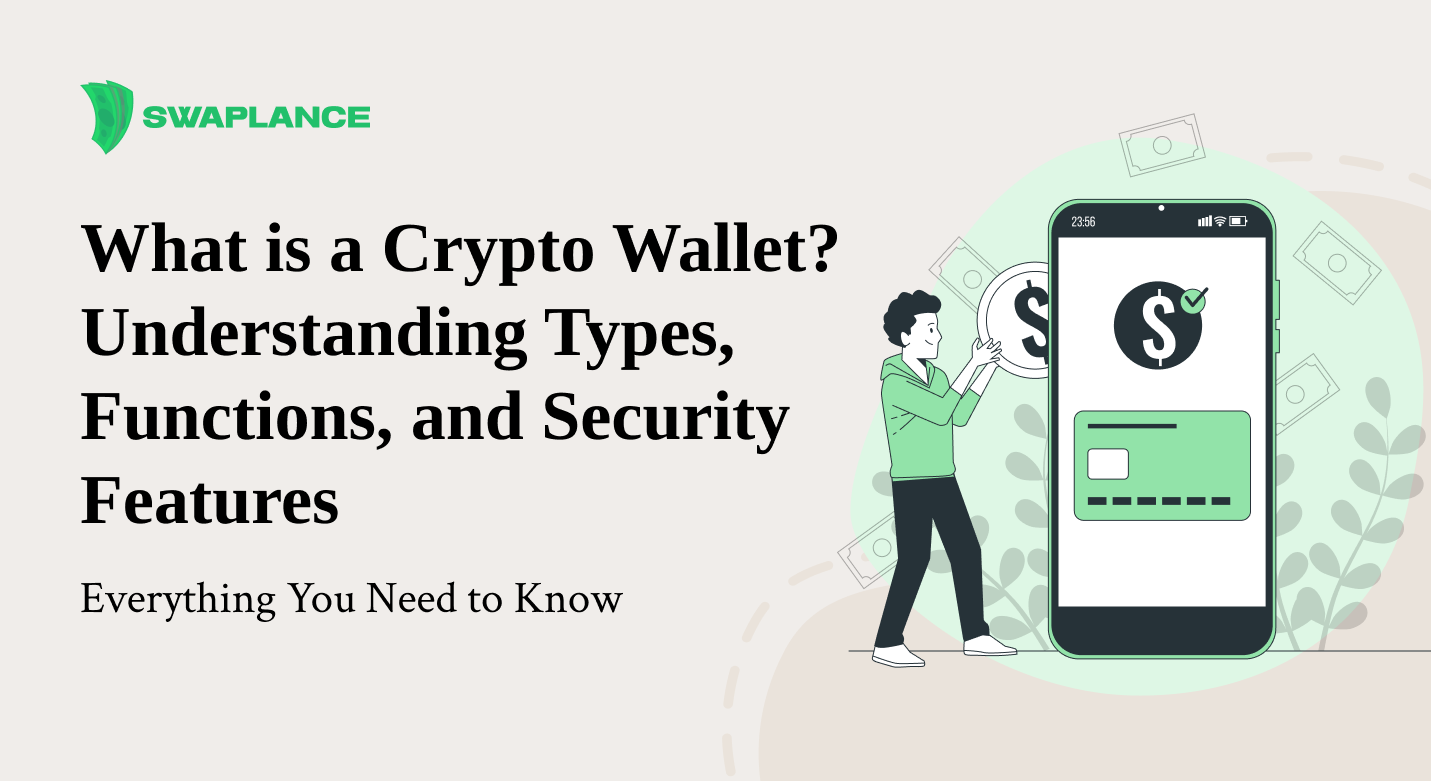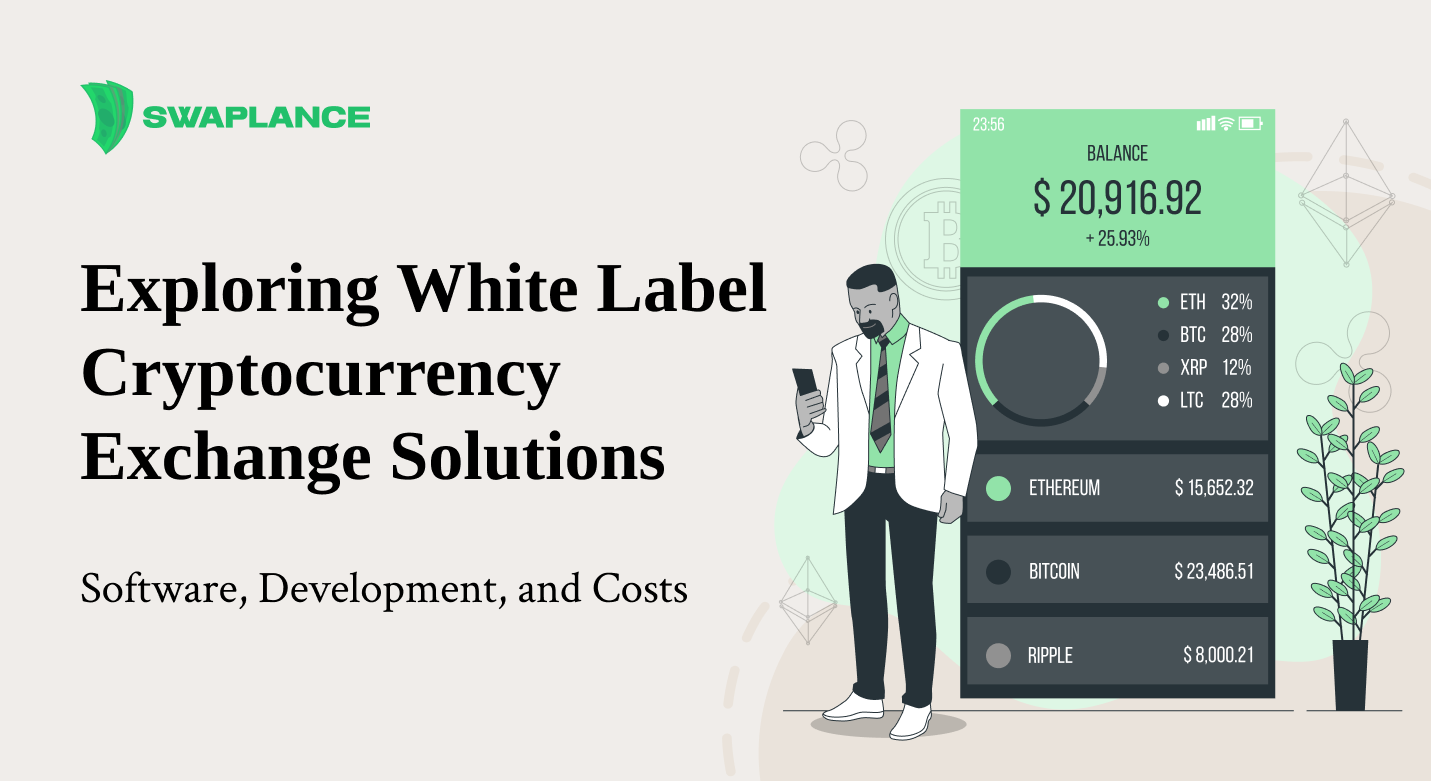
What Are Smart Contracts on Blockchain?
The concept of smart contracts has revolutionized how agreements are executed, particularly in the blockchain ecosystem. With their ability to automate, secure, and streamline processes, smart contracts are rapidly gaining traction across various industries. This article delves into what smart contracts are, how they work, and the role they play in blockchain technology.
How Smart Contracts Work, Step by Step
Smart contracts are self-executing agreements embedded in blockchain networks. Unlike traditional contracts, which require manual enforcement, these contracts automatically execute predetermined conditions when the terms are met. Each step in the lifecycle of a smart contract ensures transparency, efficiency, and trust. Let’s break down the process step by step.

The Involved Parties Consent to the Terms and Conditions
The first step in creating a smart contract involves defining the agreement between parties. The involved entities consent to specific terms and conditions, which are then digitized into the contract. But what are smart contracts in blockchain, and why are they essential?
Smart contracts in blockchain serve as digital agreements coded directly onto the blockchain. This ensures that the terms of the contract are immutable and transparent, eliminating the need for intermediaries like lawyers or brokers. For example, in a real estate transaction, both buyer and seller can agree on conditions such as payment milestones and property transfer requirements.
Platforms like Swaplance connect businesses with blockchain and smart contract experts who can design and implement these agreements with precision, ensuring seamless integration into your projects.
A Smart Contract Is Generated
Once the terms and conditions are agreed upon, the next step is to create the smart contract. So, here is what is smart contract in blockchain and how it is generated.
A smart contract is a computer program written in programming languages like Solidity (used for Ethereum) or Rust (used for Solana). These contracts are coded with "if-this-then-that" logic, meaning they automatically execute when predefined conditions are met. Developers write the code to ensure compliance with the agreed-upon terms, and the contract is stored within the blockchain.
The creation process emphasizes security and accuracy, as even minor errors in the code can lead to vulnerabilities. Businesses often rely on freelance blockchain developers available on platforms like Swaplance to ensure their smart contracts are robust and error-free.
The Smart Contract Is Launched
After coding, the smart contract is deployed onto the blockchain network. Launching the contract requires a blockchain platform such as Ethereum, Binance Smart Chain, or Solana.
The concept of smart contracts in blockchain revolves around decentralization. Once deployed, the contract operates independently, and no single entity can alter its terms. This feature ensures a trustless system where all parties are confident that the contract will execute as intended. Launching a smart contract also incurs gas fees, which vary depending on the complexity of the contract and the blockchain platform used.
Conditions for Triggering Are Satisfied
The execution of a smart contract depends on meeting its predefined conditions. These conditions are verified by the blockchain network using consensus mechanisms.
There are several types of smart contracts in blockchain. Smart contracts can vary widely, depending on their purpose and use case. Examples include:
- Payment Escrow Contracts: Automatically transfer funds upon delivery of goods or services.
- Supply Chain Contracts: Ensure transparency and traceability by updating every stage of the supply chain on the blockchain.
- Decentralized Finance (DeFi) Contracts: Facilitate lending, borrowing, and trading without intermediaries.
Once the triggering conditions are met, the contract moves to the execution phase.
The Smart Contract Is Carried Out
The actual execution of the smart contract is where its automation capabilities shine. For example, when a payment is sent from one party to another after fulfilling the agreed-upon conditions, it demonstrates smart contracts in blockchain example.
This phase eliminates manual intervention and reduces the chances of fraud or disputes. The code ensures that all parties fulfill their obligations, and the contract performs precisely as programmed. Freelancers on platforms like Swaplance can help businesses integrate smart contracts into their operations, enabling automated and efficient workflows.
The Outcome of the Contract Is Logged onto the Blockchain
Finally, the outcome of the executed contract is recorded on the blockchain. This ensures an immutable record of the transaction, providing transparency and traceability. The nature of smart contracts in blockchain guarantees that the recorded data cannot be altered, offering an unparalleled level of security.
For instance, in supply chain management, the blockchain can log every stage of a product’s journey, from manufacturer to retailer, using smart contracts. This not only boosts accountability but also enhances operational efficiency.
Smart contracts offer numerous advantages, including:
- Efficiency: Automating processes reduces time and costs associated with traditional contract execution.
- Security: Blockchain's decentralized nature ensures that contracts are tamper-proof and secure.
- Transparency: All parties can verify the contract’s terms and conditions, promoting trust.
- Elimination of Intermediaries: Direct agreements between parties reduce dependence on third-party institutions.
To fully capitalize on these benefits, businesses can leverage freelance blockchain experts on Swaplance, a platform dedicated to connecting professionals with clients for tailored smart contract solutions. They can guide you through the entire process and help you harness the full potential of blockchain technology.
Smart contracts are a game-changer in the world of finance, supply chain, and beyond. By automating agreements and ensuring security, these contracts are paving the way for more efficient and transparent transactions. Understanding the steps involved in creating and executing smart contracts can help businesses embrace this innovative technology and integrate it seamlessly into their operations.
Common questions
-
How do smart contracts function on a blockchain platform?Smart contracts function on blockchain platforms as self-executing programs that automatically enforce and execute the terms of an agreement when predefined conditions are met. These contracts are coded with specific rules and "if-then" logic, ensuring that actions, such as transferring funds or verifying data, occur only when all criteria are satisfied. Stored on the blockchain, smart contracts are decentralized, tamper-proof, and transparent, providing all parties with a secure and immutable record of the agreement. By removing intermediaries, they streamline processes, reduce costs, and enhance trust between participants.
-
What are the advantages of using smart contracts compared to traditional contracts?Smart contracts offer several advantages over traditional contracts, primarily due to their automation and security. They eliminate the need for intermediaries, reducing costs and speeding up transactions, as all processes are executed automatically when conditions are met. Stored on a blockchain, smart contracts are tamper-proof, ensuring transparency and preventing fraud or unauthorized alterations. Additionally, they provide greater efficiency by reducing paperwork and human error, while offering global accessibility for parties anywhere in the world. These features make smart contracts particularly beneficial for industries requiring secure, quick, and cost-effective agreements.
-
In what industries are smart contracts currently being implemented, and what are some practical use cases?Smart contracts are being implemented across various industries, including finance, real estate, supply chain, healthcare, and insurance. In finance, they automate loan agreements and facilitate decentralized trading. In real estate, smart contracts streamline property transactions by automating title transfers and escrow processes. The supply chain industry uses them for tracking shipments and ensuring contract compliance among parties. Healthcare leverages smart contracts for secure data sharing and patient record management. Insurance companies utilize them to automate claims processing based on predefined conditions, reducing delays and fraud. These practical use cases highlight their transformative potential in enhancing efficiency and trust.
 Mark Petrenko
Mark Petrenko 




